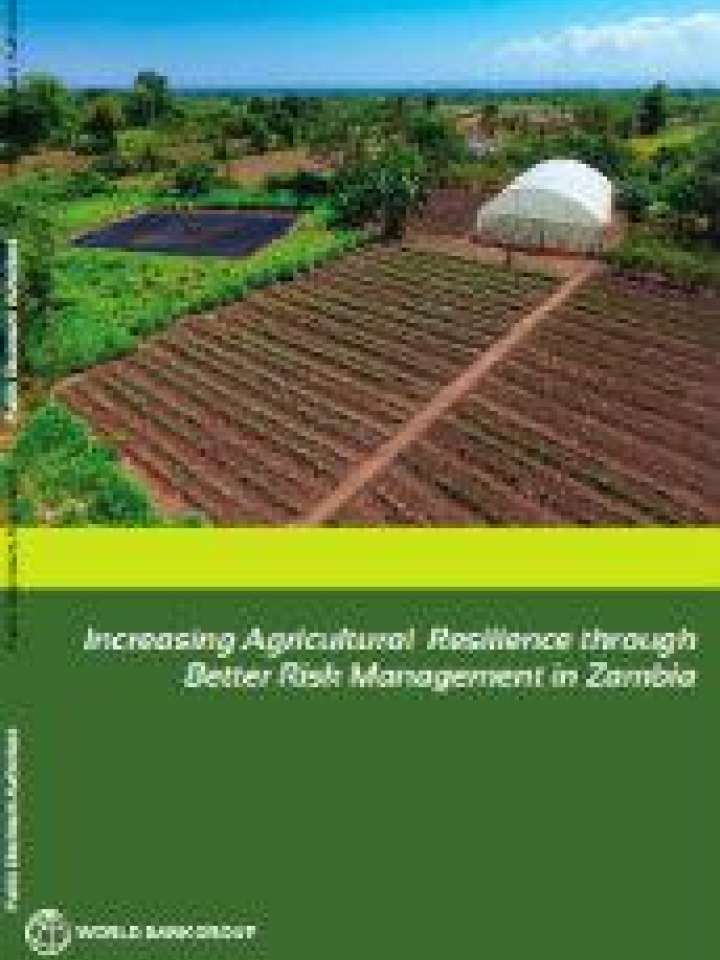Increasing agricultural resilience through better risk management in Zambia
This report provides a rigorous analysis of the production, marketing, and enabling environment risks faced by Zambia’s agricultural sector and prioritizes solutions to manage the risks. In terms of the severity and frequency of adverse impacts, the analysis shows that droughts, floods, price volatilities, and trade restrictions are the principal risks affecting agriculture in the country. Exposure to the consequences of these and other risks can be effectively limited through risk management systems tailored to the country’s context.
Three areas of risk management are found to warrant priority, with significant potential for synergizing actions undertaken across them: Strengthen early warning system to detect threats to food security; Develop climate-smart agriculture and increase resilience to climate-related shocks through diversification; and Develop the Zambian Commodity Exchange (ZAMACE) and build a shock-responsive safety net.
Explore further
